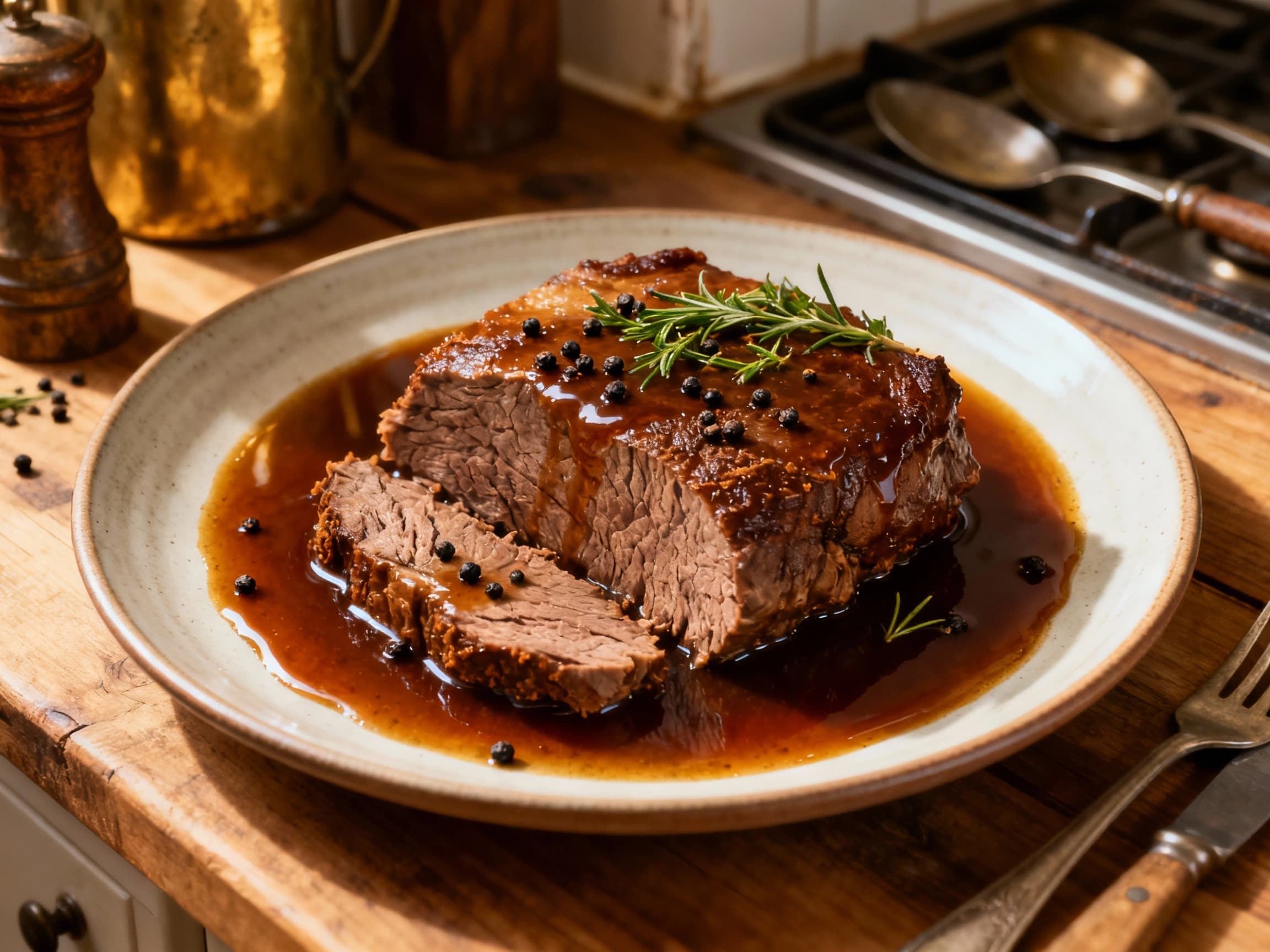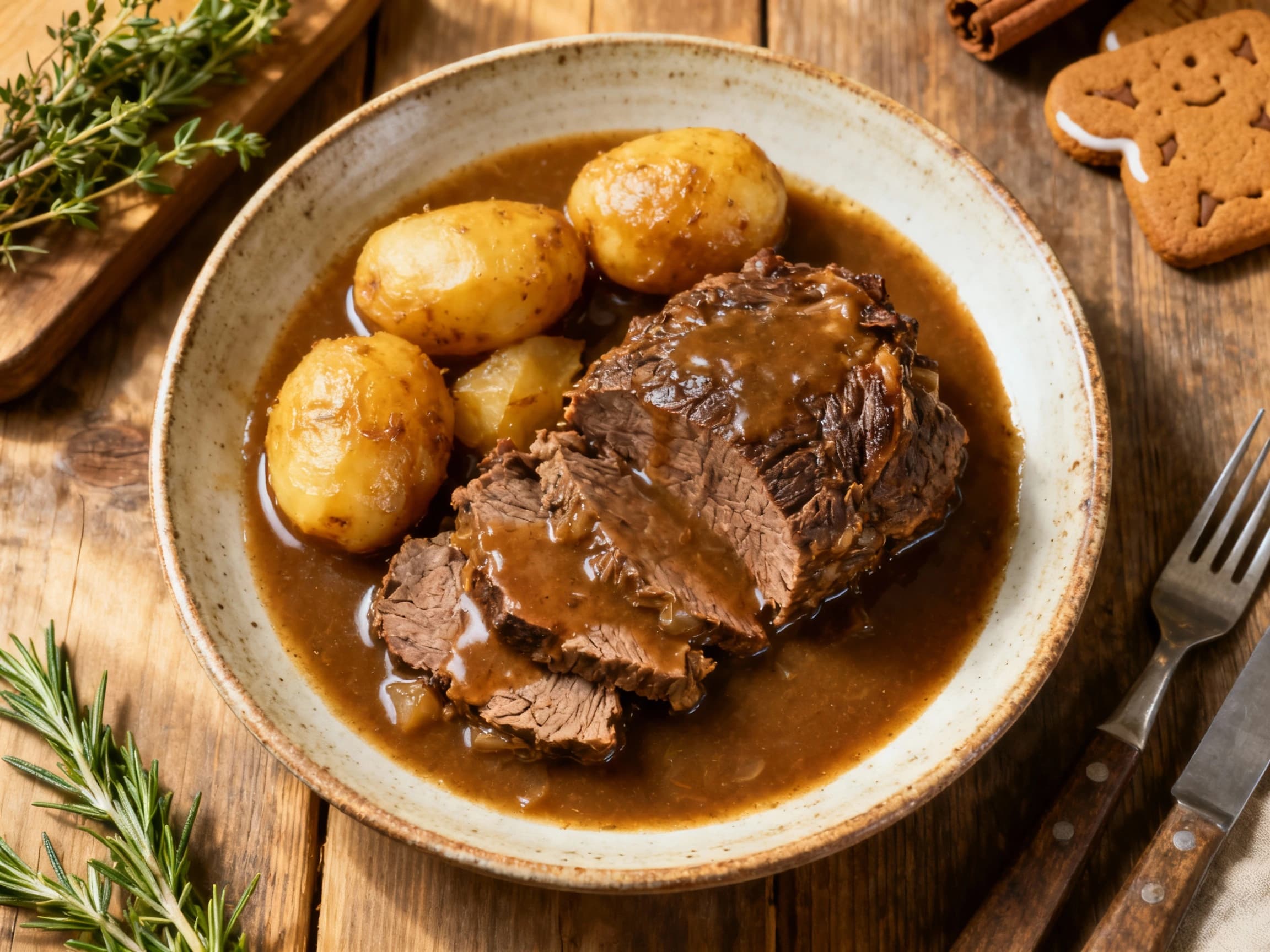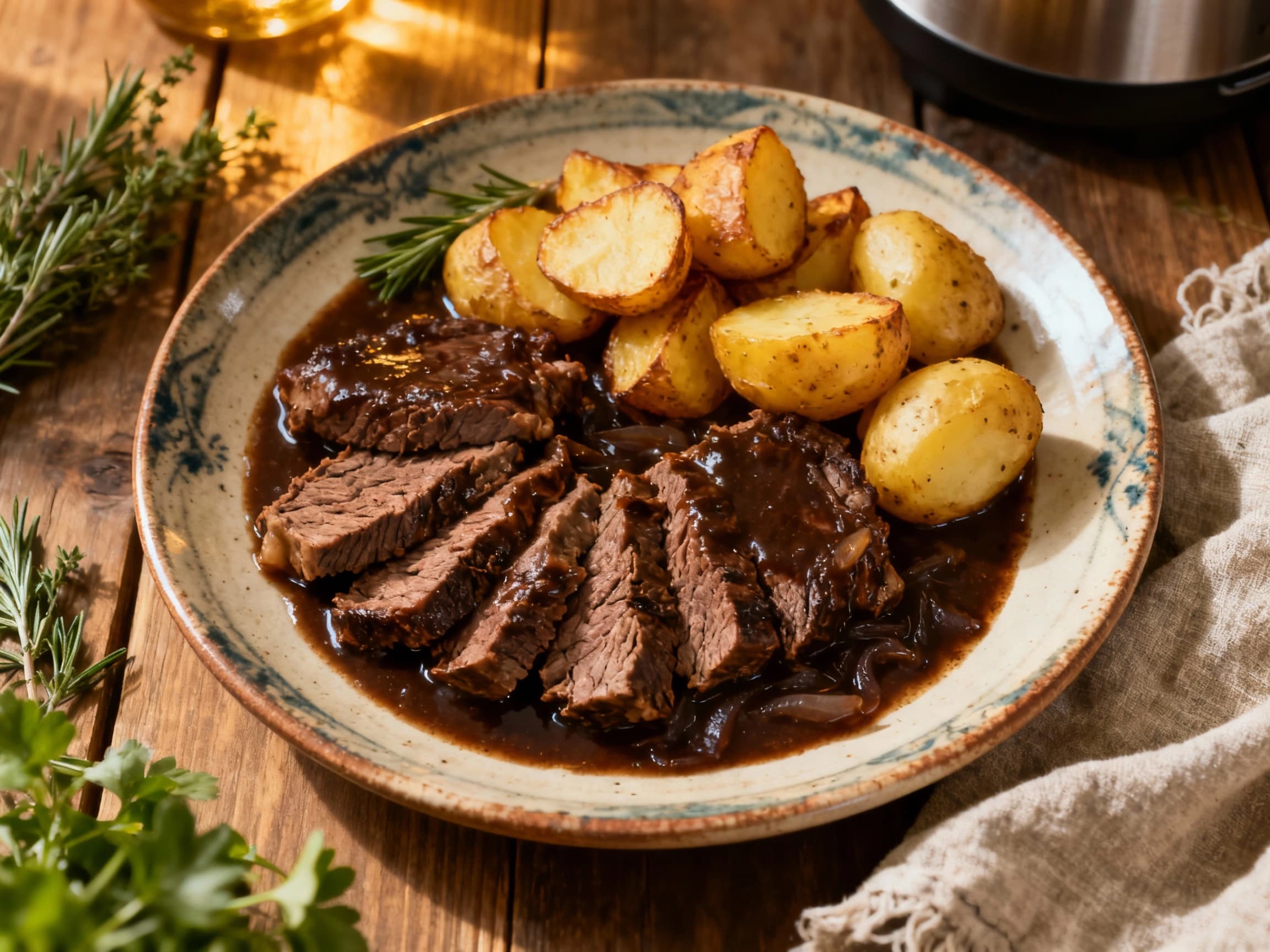
Sauerbraten (Marengo)
Sauerbraten Marengo
- Country
- Germany
- Region
- Rhineland
- Recipes
- 3 Recipes
Origins & Characteristics of Sauerbraten (Marengo)
Sauerbraten, particularly its widely recognized Marengo variation, stands as a monumental achievement in German cuisine, a testament to the art of slow cooking and flavor transformation. The term 'Sauerbraten' literally translates to 'sour roast,' hinting at its defining characteristic: a prolonged marination in a mixture of vinegar, wine, water, and a symphony of spices, including peppercorns, bay leaves, cloves, and juniper berries. This acidic bath tenderizes tougher cuts of meat (traditionally beef, but sometimes horse or venison) and imbues it with a complex, tangy flavor profile. The origins of Sauerbraten are ancient, with evidence suggesting Roman military garrisons in Germania prepared marinated and roasted meats to preserve them and enhance their flavor during long campaigns. Over the centuries, regional variations evolved, with the Rhineland developing its own distinct style. The 'Marengo' version is particularly renowned for its rich, almost stew-like gravy, often thickened with gingerbread (Lebkuchen) or fruit preserves like raisins and dried cranberries, adding a subtle sweetness and depth that beautifully balances the sourness. This specific gingerbread-thickened gravy is a hallmark associated with the Marengo style. Historically, Sauerbraten was a dish of necessity and celebration, prepared for special occasions due to the time commitment required. It represents the resourcefulness of German cooks in maximizing flavor and tenderness from readily available ingredients. Famous German writers and chefs in the 18th and 19th centuries documented and refined recipes, solidifying its place in the culinary canon. Today, Sauerbraten, including the flavorful Marengo style, is a beloved classic, a hearty centerpiece of Sunday dinners and festive meals across Germany, evoking a sense of tradition, comfort, and culinary excellence.
History of Sauerbraten (Marengo)
Recipes for marinating and roasting meats begin to appear more formally in German cookbooks.
The practice of marinating beef in vinegar and spices becomes a more established technique in German households.
The 'Marengo' variant of Sauerbraten, known for its gingerbread sauce, gains popularity, particularly in the Rhineland.
Sauerbraten is consistently featured in German culinary encyclopedias, cementing its status as a national dish.
The dish becomes a regular feature on restaurant menus across Germany, showcasing regional variations.
Culinary tourism increases interest in traditional German dishes like Sauerbraten, including its historical context.
Modern interpretations and gourmet versions of Sauerbraten emerge, appealing to contemporary palates while respecting tradition.


